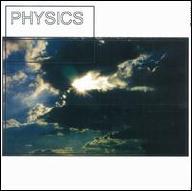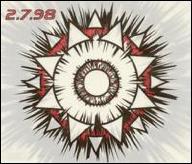Tragically, core member Denver Lucas perished in 1994 under circumstances that remain uncertain; the most likely conclusion was that he slipped and fell off of a cliff on the beach, probably while on an acid trip, and that his body washed up on shore at least one week later. After a hiatus of almost a year, Physics finally reconvened with a succession of other drummers, depending on availability, although Lee Chapman eventually settled in as the most consistent presence. Gradually, the band moved past its initial one-chord premise to develop a variety of improvisational frameworks, though each still took a great deal of time to develop. In 1997, Physics issued a self-titled compilation of recordings from the past three years on local indie Flapping Jet; by this time, the core membership consisted of Goff, Soares, Crow, Coad, Chapman, bassist/synth player Will Goff, and -- sometimes -- synth player Pea Hicks (who worked with Crow in Optiganally Yours). This lineup remained more or less intact for the band's first widely distributed release, another eponymous album that appeared in 1998 on Gravity Records (fans differentiated the two by dubbing them Physics 1 and Physics 2). However, more changes ensued: the Goff brothers, Crow, and Soares were subsequently joined by drummer Cameron Jones (also briefly of Thingy and Pinback) and synth player Thatcher Orbitashi, plus Coad on occasion.
The band's always contentious mix of personalities -- which contributed to their relatively low recorded output -- finally spelled an end to Physics in 2000. A posthumous concert EP, Live 2-7-98, was released by Gold Standard in 2001. Jason Soares, meanwhile, kept the Physics aesthetic going in the offshoot project Aspects of Physics, which drew more explicitly from modern electronica and IDM. His initial partner in AOP was Thatcher Orbitashi, who left after about a year and was replaced by Jeff Coad; their debut album, Systems of Social Recalibration, was released in 2002. ~ Steve Huey, Rovi













